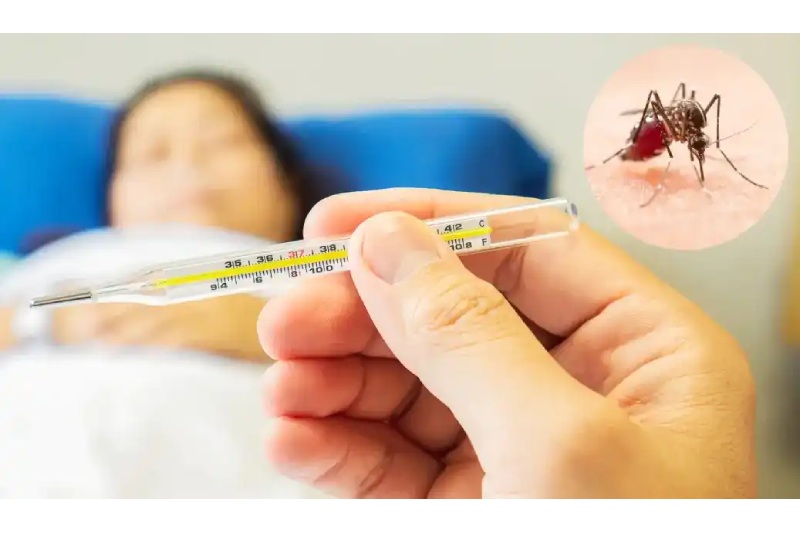Dengue Fever: Fear of dengue, malaria, and other illnesses has increased since the monsoon season began in some regions of the nation. Just as the monsoon season is starting, numerous instances of dengue fever have been reported throughout the nation. Because there is an abundance of stagnant and dirty water during the monsoon, the danger of dengue increases. This gives mosquitoes the perfect environment for reproduction, which raises the number of diseases.
Is a High Fever a Serious Dengue Symptom?
A high temperature is frequently mentioned as one of the most significant indicators of dengue fever while discussing the symptoms of the illness. Although symptoms can include severe headaches, pain behind the eyes, severe joint and muscle pain, fatigue, nausea, vomiting, and skin rash, which appears two to five days after the onset of fever and mild bleeding (such as nose bleeds, bleeding gums, or easy bruising), they typically start four to six days after infection and can last for up to ten days. According to the WHO, severe dengue symptoms might include the following and typically appear after the fever has subsided:
- severe abdominal pain
- persistent vomiting
- rapid breathing
- bleeding gums or nose
- fatigue
- restlessness
- blood in vomit or stool
- being very thirsty
- pale and cold skin
- feeling weak
When Should You Visit a Doctor?
It’s critical to know when to consult a doctor if you have severe dengue because the illness can be fatal. If you have had a fever and any of the warning signs appear, get medical help right away if you have recently been in an area where dengue fever is known to exist. Severe abdominal pain, vomiting, dyspnea, or blood in the nostrils, gums, vomit, or feces are warning indicators.
Advice on Preventing Dengue
Apply bug repellents and dress in baggy, long-sleeved shirts and trousers.
To protect yourself and your family from mosquito bites, take preventative measures.
If you sleep outside of your room, a bed net is another option.
Dengue normally starts to show symptoms two weeks following a mosquito bite, so if you experience any symptoms, get medical help right once.
For the purpose of keeping mosquitoes from breeding, change the water in your plants at least once every week.
To keep the water from becoming contaminated, tightly cover all tanks, containers, and spaces used for storing water.


